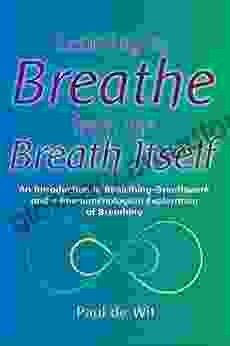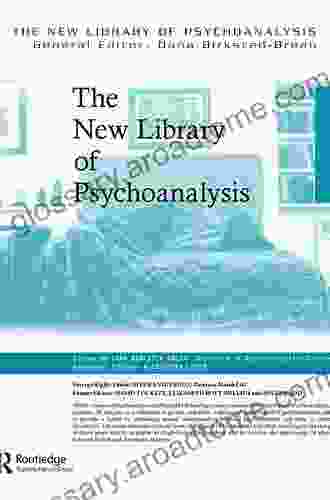Unveiling the Human Psyche: A Comprehensive Guide to Personality Theories and Models

The human psyche, a realm of intricate complexities and fascinating paradoxes, has long captivated the minds of scholars, philosophers, and psychologists. In our quest to understand the tapestry of human behavior, personality theories and models have emerged as indispensable tools, providing a framework to unravel the enigmatic threads that weave the fabric of our individuality.
4.5 out of 5
| Language | : | English |
| File size | : | 20835 KB |
| Screen Reader | : | Supported |
| Print length | : | 808 pages |
In this comprehensive guide, we embark on a journey into the depths of personality psychology, exploring an extensive array of theories and models that have shaped our understanding of the human psyche. From the seminal work of Sigmund Freud to the groundbreaking insights of Carl Jung, Abraham Maslow, and Carl Rogers, we delve into the foundations, principles, and applications of each theory, unlocking a treasure trove of knowledge that will illuminate your understanding of human behavior.
The Psychoanalytic Perspective: Sigmund Freud
Sigmund Freud, the father of psychoanalysis, revolutionized our perception of the unconscious mind and its profound influence on personality development. According to Freud, personality is shaped by early childhood experiences and unconscious conflicts, particularly within the realm of the Oedipus complex and the stages of psychosexual development.
Freud's psychoanalytic theory proposes a three-part structure of personality: the id, ego, and superego. The id, the primal and instinctive part, seeks immediate gratification. The ego, the mediator, balances the demands of the id and the realities of the external world. The superego, the moral compass, represents internalized societal norms and ideals.
Analytical Psychology: Carl Jung
Carl Jung, a Swiss psychiatrist and psychoanalyst, expanded upon Freud's work, introducing the concept of the collective unconscious. Jung believed that the human psyche is influenced by archetypal patterns and symbols that are shared across cultures and generations.
Jung's analytical psychology emphasizes the importance of individuation, the process of integrating conscious and unconscious aspects of the personality to achieve a sense of wholeness and self-realization. He proposed a typology of psychological types based on the dominance of introversion or extroversion and the primary cognitive functions of thinking, feeling, sensation, and intuition.
Humanistic Psychology: Abraham Maslow and Carl Rogers
Humanistic psychology, a school of thought that emerged in the mid-20th century, shifted the focus from pathology to human potential and growth. Abraham Maslow, a prominent figure in humanistic psychology, developed the hierarchy of needs, which proposes that individuals must satisfy basic physiological and safety needs before they can pursue higher-level needs such as love, belonging, esteem, and self-actualization.
Carl Rogers, another influential humanistic psychologist, introduced the concept of self-actualization, the innate tendency of individuals to strive towards their full potential. Rogers believed that a nurturing and supportive environment, characterized by unconditional positive regard and empathy, is essential for personal growth and self-acceptance.
Trait Theory: Raymond Cattell and Hans Eysenck
Trait theory, a widely used approach in personality psychology, posits that personality is composed of a set of stable and enduring traits. Raymond Cattell identified 16 primary personality factors, while Hans Eysenck proposed a two-dimensional model based on extroversion-introversion and neuroticism-stability.
Trait theory emphasizes the consistency of personality across different situations and over time. It has been extensively used in personality assessment and research, providing a quantitative approach to understanding individual differences.
Cognitive Theory: Albert Bandura
Cognitive theory, pioneered by Albert Bandura, focuses on the role of cognitive processes in shaping personality and behavior. Bandura's social cognitive theory emphasizes the importance of observational learning, self-efficacy, and cognitive distortions in shaping personality development.
According to Bandura, individuals learn by observing the behavior of others and then imitating or modeling it. Self-efficacy, the belief in one's ability to perform a task effectively, plays a crucial role in shaping behavior and goal achievement. Cognitive distortions, such as negative self-talk and catastrophizing, can hinder self-efficacy and limit personal growth.
Interactionist Perspectives
Interactionist perspectives, which integrate elements of both biological and environmental factors, provide a comprehensive approach to understanding personality development. These models emphasize the dynamic interplay between genetic predispositions, environmental influences, and personal experiences in shaping personality.
Interactionist theories highlight the role of genetics in shaping temperament and certain personality traits. However, they also acknowledge the significant influence of environmental factors, such as parenting style, social experiences, and cultural context, on personality formation.
Applications of Personality Theories and Models
The knowledge gained from personality theories and models has a wide range of applications in various fields, including:
- Psychology and Psychotherapy: Personality theories guide the diagnosis and treatment of mental health disFree Downloads, providing a framework for understanding the underlying psychological processes and motivations.
- Education: Personality theories can inform teaching methods and curriculum design by tailoring educational experiences to the unique learning styles and personality characteristics of students.
- Business and Management: Personality theories help in understanding employee motivation, leadership styles, and team dynamics, contributing to effective management and organizational success.
- Forensic Psychology: Personality assessment and profiling play a vital role in criminal investigations and forensic evaluations, providing insights into the psychological makeup of offenders and potential suspects.
The study of personality is a fascinating and ever-evolving field that continues to unravel the intricacies of the human psyche. Personality theories and models provide invaluable tools for comprehending the complexities of human behavior, shedding light on the forces that shape our thoughts, feelings, and actions.
Whether you are a student of psychology, a mental health professional, or simply curious about the enigmatic nature of human personality, this guide has offered a comprehensive overview of the major personality theories and models.
4.5 out of 5
| Language | : | English |
| File size | : | 20835 KB |
| Screen Reader | : | Supported |
| Print length | : | 808 pages |
Do you want to contribute by writing guest posts on this blog?
Please contact us and send us a resume of previous articles that you have written.
 Book
Book Novel
Novel Page
Page Chapter
Chapter Text
Text Story
Story Genre
Genre Reader
Reader Library
Library Paperback
Paperback E-book
E-book Magazine
Magazine Newspaper
Newspaper Paragraph
Paragraph Sentence
Sentence Bookmark
Bookmark Shelf
Shelf Glossary
Glossary Bibliography
Bibliography Foreword
Foreword Preface
Preface Synopsis
Synopsis Annotation
Annotation Footnote
Footnote Manuscript
Manuscript Scroll
Scroll Codex
Codex Tome
Tome Bestseller
Bestseller Classics
Classics Library card
Library card Narrative
Narrative Biography
Biography Autobiography
Autobiography Memoir
Memoir Reference
Reference Encyclopedia
Encyclopedia Nachole Johnson
Nachole Johnson Gary C King
Gary C King John S Burk
John S Burk Frank Gregory Smith
Frank Gregory Smith Shane Schilperoort
Shane Schilperoort Gerri Monaghan
Gerri Monaghan Patricia Pierce
Patricia Pierce Gerald J Gargiulo
Gerald J Gargiulo Frank Howie
Frank Howie Gary Austin
Gary Austin Jack Canfield
Jack Canfield Mike Miley
Mike Miley Stephen Jenkinson
Stephen Jenkinson Gaia J Mellor
Gaia J Mellor Gaelle Kermen
Gaelle Kermen Giles Whittell
Giles Whittell Mark David Major
Mark David Major Max Freedom Long
Max Freedom Long Gabriel A Almond
Gabriel A Almond Francis S Collins
Francis S Collins
Light bulbAdvertise smarter! Our strategic ad space ensures maximum exposure. Reserve your spot today!
 Chase MorrisFollow ·19.4k
Chase MorrisFollow ·19.4k Arthur C. ClarkeFollow ·6k
Arthur C. ClarkeFollow ·6k Harrison BlairFollow ·19.1k
Harrison BlairFollow ·19.1k Harold PowellFollow ·12.7k
Harold PowellFollow ·12.7k Devin RossFollow ·19.4k
Devin RossFollow ·19.4k Matt ReedFollow ·10k
Matt ReedFollow ·10k Milton BellFollow ·10.9k
Milton BellFollow ·10.9k Robbie CarterFollow ·17.9k
Robbie CarterFollow ·17.9k

 Chinua Achebe
Chinua AchebeLetters to My Bipolar Self: A Journey of Hope, Healing,...
Bipolar disFree...

 John Parker
John ParkerLearning to Breathe from the Breath Itself: A...
In the whirlwind of modern life, finding...

 Beau Carter
Beau CarterExperiences In Psychoanalysis: A Journey into the...
Are you fascinated by the...

 George Hayes
George HayesExperiences Of The Neurological Condition Dystonia
Navigating the Labyrinth of a Complex...

 Jerome Powell
Jerome PowellOver 50 Keto Meal Prep Recipes: Your Essential Guide to...
Welcome to the world...
4.5 out of 5
| Language | : | English |
| File size | : | 20835 KB |
| Screen Reader | : | Supported |
| Print length | : | 808 pages |













